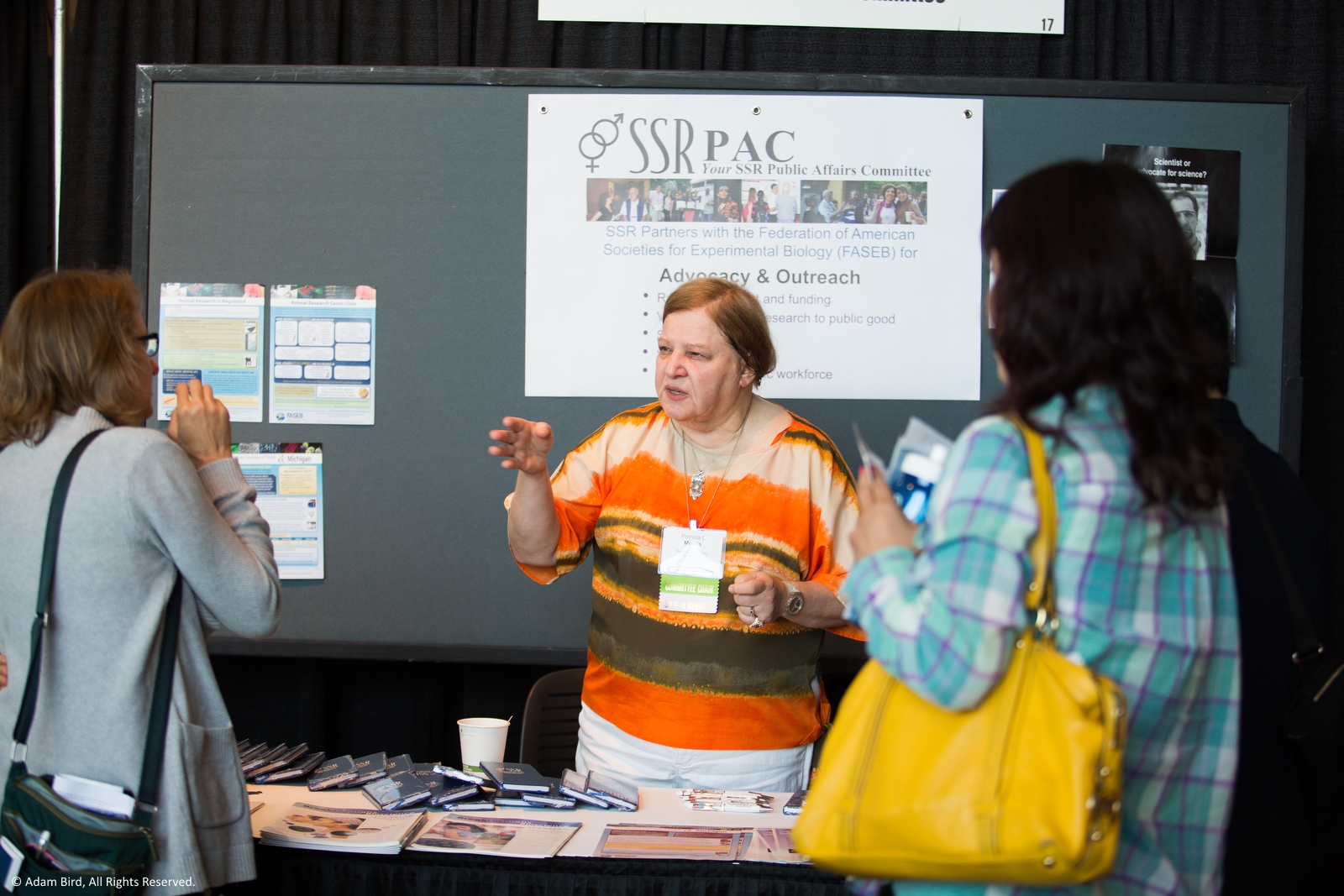Reproductive Science and Policy Resources
The following links to articles, sites, databases, and fact sheets are curated by the Public Affairs Committee. If you run across a site that you think your fellow SSR members would find useful, please let the Committee know about it.
Science Policy, Advocacy, and Research Reproducibility
- Federal Agency Decisions on Membership — April 2025
- FASEB Resources
–Science Policy and Advocacy
–Animals in Research and Education
–Federal Research Funding Data
–Become an Advocate for Scientific Research
Educational Toolkits on Reproductive Biology
The Public Affairs Committee of the Society for the Study of Reproduction (SSR) is proud to offer a series of interactive, user-friendly educational toolkits designed to engage middle and high school students in learning about key concepts in reproductive biology. We are continuously making new toolkits. The toolkits we make will cover a wide range of topics, including meiosis, sex differentiation, and other reproductive biology concepts. Each toolkit is crafted to be informative, accessible, and easy to implement in the classroom, providing students with a hands-on learning experience. Our goal is to inspire curiosity, foster understanding, and encourage the next generation of scientists to explore the fascinating field of reproductive science.
Educational Materials and BioBanks
- The Visual Guides of Animal Reproduction (aka The Drost Project)
- ISSCR stem cell research guidelines (to complement the SSR position statement)
- EndoRISE: An educational and scientific (Biobank) resource for endometriosis
- Global Alliance to Prevent Prematurity and Stillbirth (GAPPS) includes a pregnancy biobank
- Human Endometrial Tissue and DNA Bank (UCSF)
- Non-Human Primate Tissue Distribution Program (Oregon Health & Science University)
- Assisted Reproductive Technology Reports
- NIA Nonhuman Primate Tissue Bank (focus on aging)
Databases
The following databases might prove to be useful to our researchers:
- Mammalian Reproductive Genetics Database V2
- CITDBase: Contraceptive Infertility Target DataBase
- Female Reproductive Tract (FRT) Atlas
- Male Fertility Gene Atlas
- Male Infertility Knowledgebase
- Human Fertility Database
- Reproductive Processes and Chemicals Database
- Infertility Disease DataBase Xtra (IDDB Xtra)
- ReproGenomics Viewer
- Tissue-Specific Gene DataBase in Cancer
- ShinySpermKingdom
- Ovarian Kaleidoscope Database (OKdb)
- Human BioMolecular Atlas Program Data Portal
- Multispecies Ovary Tissue Histology Electronic Repository (MOTHER)
- NICHD Data and Specimen Hub (DASH)
- International Mouse Phenotyping Consortium
- Mouse Genome Informatics
- Lab Code Database (animal model nomenclature), Board on Animal Health Sciences, Conservation, and Research (BAHSCR)
NIH Resources
Non-Federal Funding Sources
- Society for the Study of Reproduction
- American Society for Reproductive Medicine (ASRM)
- Bill & Melinda Gates Foundation
- The Lalor Foundation
- Burroughs Wellcome Fund
- March of Dimes
- Ovarian Cancer Research Alliance (OCRA)
- Endometriosis Foundation of America
Statements
SSR has taken official positions on the following issues:
- “Coverage for Individuals Participating in Approved Clinical Trials,” as added by the Patient Protection and Affordable Care Act (ACA)
- Stem Cell Research
- Online Publication and Access to Journal Content
- Postdoctoral Fellows
- Use of Animals in Education
- Human Cloning
- Hormone Replacement Therapy


